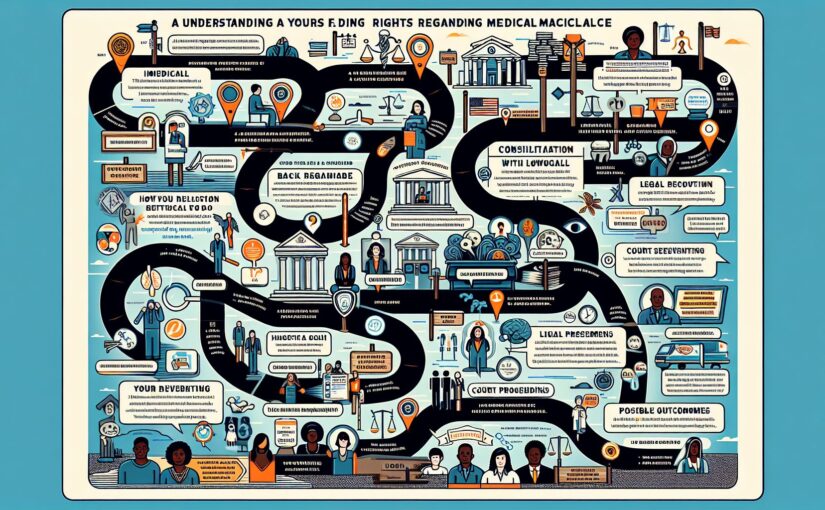When we seek medical treatment, we trust healthcare providers to deliver care that will improve our health. Unfortunately, sometimes things go wrong, and patients are harmed rather than helped. Medical malpractice is a serious concern that affects thousands of individuals, leaving them facing not only physical and emotional challenges but also the daunting task of seeking justice and compensation. This post will guide you through the complexities of medical malpractice and help you understand your rights if you ever find yourself in such an unfortunate situation.
What is Medical Malpractice?
Medical malpractice occurs when a healthcare professional deviates from the standard of care in the medical community and causes injury to a patient. This could be due to errors in diagnosis, treatment, aftercare, or health management. To be considered malpractice, the negligence must result in injury or damage to the patient, and this breach in the standard of care must be directly responsible for the harm.
Recognizing the Signs of Medical Malpractice
It’s essential to recognize signs that may indicate medical negligence. These could include a diagnosis that doesn’t seem to match your symptoms, a condition that worsens after treatment, an unexpected death, or if you receive a different second opinion. However, not all medical errors constitute malpractice; they must be proven to result from negligence and cause significant harm.
The Role of Negligence and Liability
Understanding negligence is crucial in medical malpractice cases. Healthcare providers have a duty to provide care with a level of skill and expertise consistent with their profession. If they fail to do so, they can be held legally liable. Negligence is established by showing that a competent professional would have acted differently under the same circumstances.
The Importance of Expert Testimony
In medical malpractice cases, expert testimony is often the key to success. Medical experts can explain complex medical issues to a jury and establish what the healthcare provider should have done under the standard of care. They can also testify how the provider’s actions or lack thereof led to the injury.
Steps to Take If You Suspect Malpractice
If you suspect that you or a loved one has been a victim of medical malpractice, time is of the essence. Begin by seeking a second medical opinion to address any health concerns and document your injuries. Then, consult with a specialized personal injury attorney experienced in medical malpractice. Legal professionals can help navigate the complex medical and legal issues, advise you on the strength of your case, and represent you in seeking compensation.
Collecting Medical Records
Your medical records are pivotal in building a case for malpractice. They provide an official account of the treatments and interactions with healthcare providers. It’s vital to collect all relevant records as soon as you suspect malpractice.
Understanding the Legal Process
Medical malpractice cases can be lengthy and complicated. There’s often a pre-litigation process where the claim is investigated, and medical experts are consulted. If the case proceeds to trial, it can take several years to resolve. An experienced injury attorney can help you understand the timeline and what to expect at each stage of the process.
Compensation and Damages in Medical Malpractice Cases
Victims of medical malpractice may be entitled to various forms of compensation. This may include medical bills, lost wages, future earnings, pain and suffering, and more. In the tragic event of a wrongful death due to malpractice, families might seek compensation for funeral costs, loss of consortium, and other damages.
Economic vs. Non-Economic Damages
Damages in malpractice cases are generally categorized as economic or non-economic. Economic damages can be easily quantified, such as medical expenses and lost income. Non-economic damages cover the more intangible effects like pain and suffering, loss of enjoyment of life, and emotional distress.
The Role of Settlements
Many medical malpractice cases are settled out of court. A settlement is an agreement between parties to resolve the case without going to trial. Settlements can provide compensation to victims more quickly but may result in lower amounts than what might be awarded in court.
The Impact of Tort Reform on Medical Malpractice Claims
Tort reform has introduced changes to the way medical malpractice claims are handled in various states. These reforms can include caps on non-economic damages and the establishment of special medical courts. It’s crucial to understand how these reforms may affect your case.
Choosing the Right Personal Injury Attorney
Selecting the right attorney is a decision that can greatly impact the outcome of your case. Look for someone with a strong track record in medical malpractice law, who communicates clearly, and who makes you feel confident in their representation.
Telemedicine and the Future of Malpractice Claims
With the rise of telemedicine, new questions about medical malpractice are emerging. It’s still an evolving area of law, but the same principles of standard of care and negligence apply. As telemedicine continues to grow, so does the potential for malpractice in this space, and legal standards will need to adapt accordingly.
Medical malpractice is a field that arduously entwines law and medicine, requiring a delicate and informed approach. Understanding your rights and the intricacies of the legal process can make a significant difference in confronting such an unfortunate event. Although no one wants to face the aftermath of medical negligence, being equipped with the right information and a skilled attorney can help ensure that justice is served, and appropriate compensation is secured. If you find yourself grappling with the consequences of medical malpractice, remember that you are not alone, and help is available to guide you through this challenging journey towards healing and restitution.
